Publications
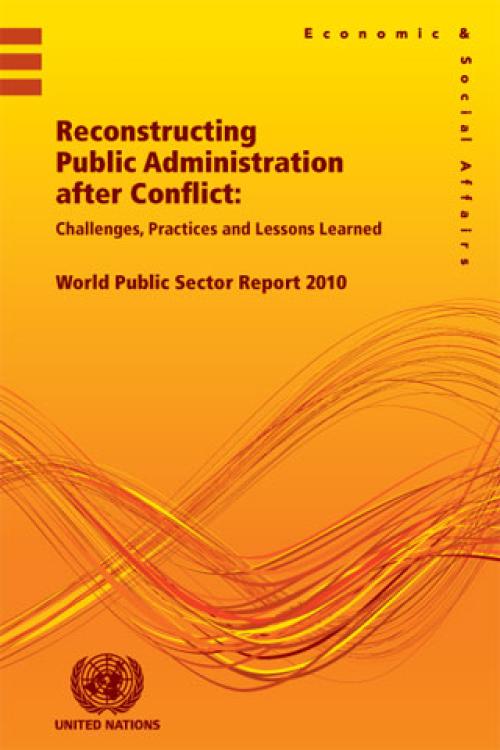
Reconstructing Public Administration after Conflict
The 2010 World Public Sector Report brings to the fore a very critical issue - how to reconstruct public administration in post-conflict situations so as to enable it to promote peace and development in countries that have been affected by civil war and destruction. It is a question that has remained unresolved for decades and has brought poverty, despair, and death to people in many corners of the world. The Report shows that no progress can be made in promoting peace, development and protection of human rights unless appropriate governance and public administration institutions are established, leadership and human resources…
The present report recognizes that further progress has been made towards fulfilling the promises embodied in Millennium Development Goal 8 (MDG 8). At the same time, it identifies important setbacks, most of which have arisen from the current state of the world economy which is suffering its severest downturn since the Great Depression of the 1930s. Some donor countries are cutting their budgets for official development assistance (ODA); several developed and developing countries have resorted to protectionist measures; resurging debt distress is increasing the need for further and broader debt relief; the costs of essential medicines are on the rise; and the technological divide…
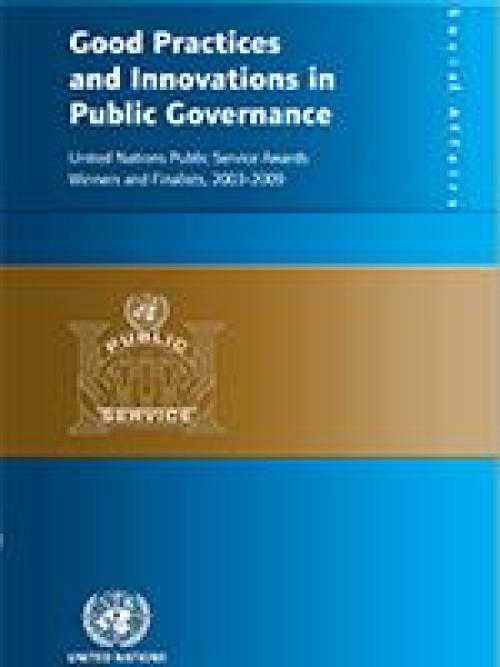
This publication provides an overview of 85 successful innovations in governance and public administration from 40 countries that received the United Nations Public Service Awards, which is the most prestigious international recognition of excellence in public service. The purpose of this book is to disseminate, through descriptive case studies, information about innovative practices by looking at the problem that led to an innovation; the solution that was designed and implemented to respond to the specific challenge; the actors and steps involved in the innovation process, and lessons learned. Learning more about how public institutions from around the world have solved difficult…
The MDG Gap Task Force has assessed the global commitments contained in the framework of the Millennium Development Goals (MDGs) ratified by Governments as the various international events that followed the Millennium Summit. The United Nations Millennium Declaration emphasized that strengthened global partnerships for development were needed to provide the enabling environment for accelerating progress in reducing poverty, improving health and education, establishing gender equality and ensuring the protection of the environment as defined in the MDGs.
The main message of the present report is that while there has been progress on several counts, important gaps remain in…
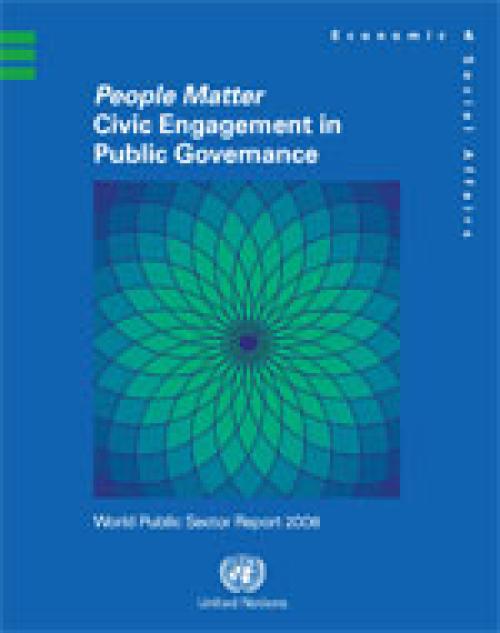
People Matter: Civic Engagement in Public Governance
The 2008 World Public Sector Report, People Matter: Civic Engagement in Public Governance, highlights the importance of civic engagement in public governance and by profiling several case studies, demonstrates how such practices gain the capacity to strengthen governance, make it more transparent and accountable and most importantly, contribute to developmental outcomes that are more sustainable, equitable and just. The Report also highlights several challenges and cautions that adequate attention must be given to the issues of power relations, institutional capacities of the government as well as the civil society organizations…
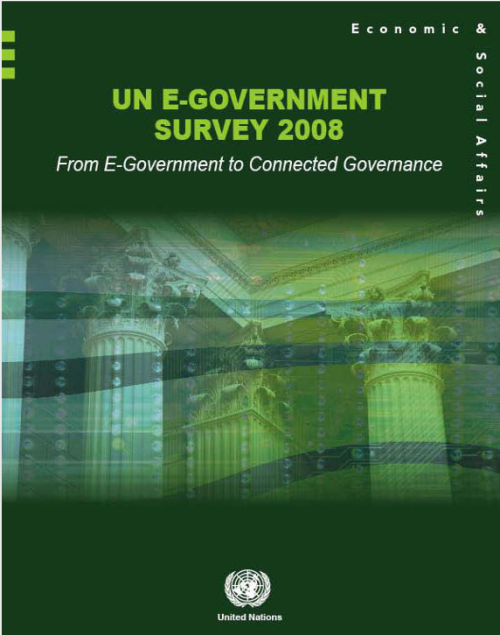
The UN E-Government Survey 2008: From E-Government to Connected Governance assesses the E-Government Development of the 192 Member States of the UN according to a quantitative composite index of e-readiness based on website assessment, telecommunication infrastructure, and human resource endowment. ICTs can help reinvent government in such a way that existing institutional arrangements can be restructured and new innovative arrangements can flourish, paving the way for a transformed government.
The focus of the report this year, in Part II, is e-government initiatives directed at improving operational efficiency through the integration of back-office functions. Whilst such…
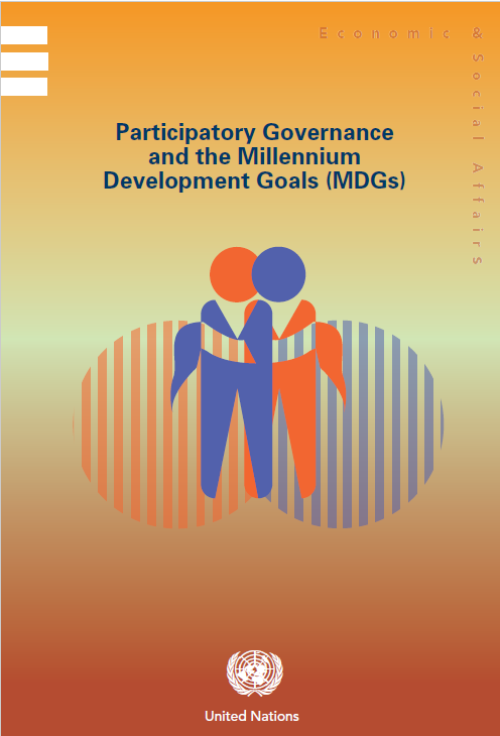
The Participatory Governance and the Millennium Development Goals (MDGs) publication is an output of the Expert Group Meeting (EGM) organized by UNDESA on Engaged Governance: Citizen Participation in the Implementation of the Developmental Goals including the Millennium Development Goals, which was held at the United Nations Secretariat, New York, from 1-2 November 2006.
The EGM convened leading experts on the subject, with the goal of providing a platform for dialogue and exchange of insights and experiences on pertinent issues relating to the role of engaged governance and participation in the implementation of development goals. The meeting covered topics including the pre-…
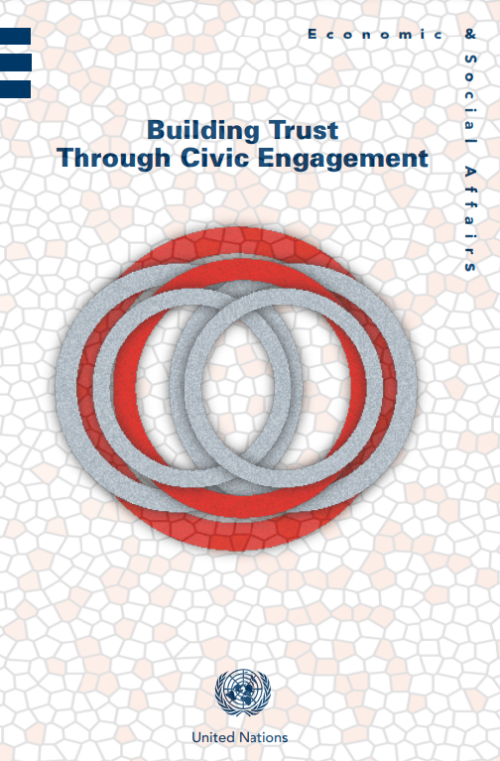
This publication is the result of the Workshop on Building Trust through Civic Engagement, held as part of the 7th Global Forum on Reinventing Government: Building Trust in Government, which took place at the United Nations Headquarters in Vienna from 26 to 29 June 2007. The Workshop was organized by the United Nations Department of Economic and Social Affairs (UNDESA), with the support of partner institutions including the Eastern Regional Organization for Public Administration (EROPA), Kyung Hee University (Republic of Korea), the International Budget Project of Washington, D.C., Queensland (Australia) Community Engagement Alliance, and the New York University Wagner Graduate School of…
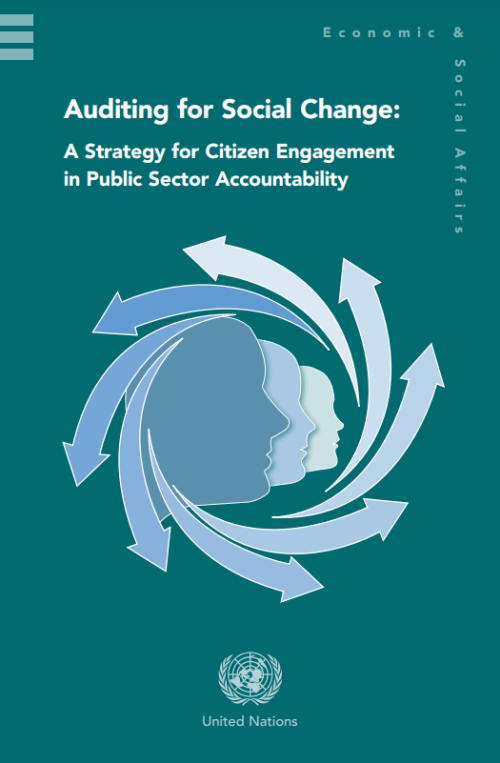
The publication is a result of the outcome of the Expert Group Meeting (EGM) in Seoul on May 26-27 2005 titled “Auditing for Social Change”, organised in partnership with the Board of Audit and Inspection (BAI) of the Republic of Korea, to discuss how the audit function, both external and internal, can become tools for social change and impact.
The EGM drew together experts from research institutes, think tanks, civil society organizations, international organizations as well viii Auditing for Social Change as the external and internal audit community. It explored how the audit process can be made more open and participatory and indeed, how audit can be used as a…
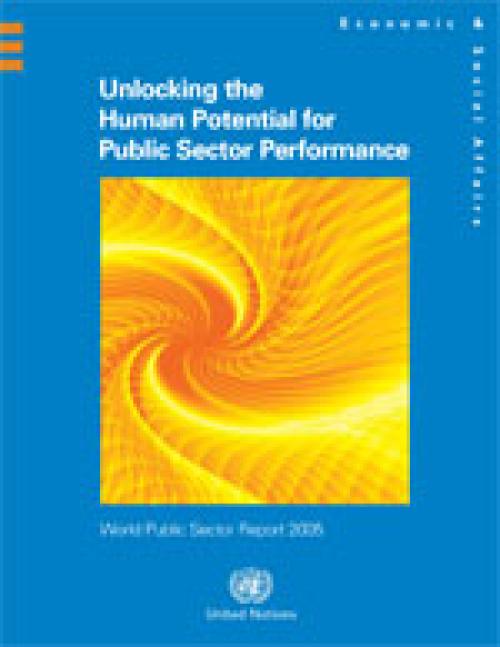
unlocking the Human Potential for Public Sector Performance
As recommended by the UN Committee of Experts on Public Administration (UNCEPA), the third World Public Sector Report will be published in 2005, with a particular thematic focus on human resources management (HRM). More specifically, the report will explore how the human potential can be unlocked to enhance public sector performance. UNCEPA, at its Second Meeting in April 2003, stressed that human resources capacity was critical to the quality of public administration. The increasing complexity of both policy-making and administrative processes, as well as the erosion of human resources capacity to carry out those…
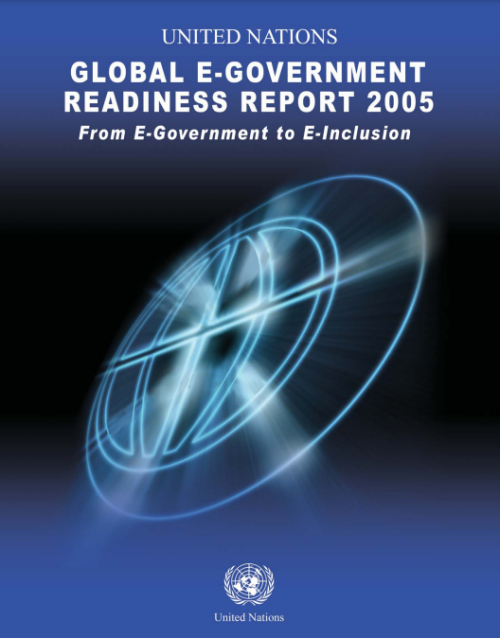
The spread of information technologies to a select group of people in the world is worsening disparities between the e-haves and the e-have-nots. There is a danger that unequal diffusion of technology, far from fomenting cohesion by providing opportunity, will result in reinforcing the traditional patterns of economic and social inequalities which will lead to a weakening of social bonds and cultural organization.
Exploring the interlinkages between e-government and human development, Part II of the UN Global E-Government Development Report 2005 points to the need to place development thinking within what it terms as the Socially Inclusive…
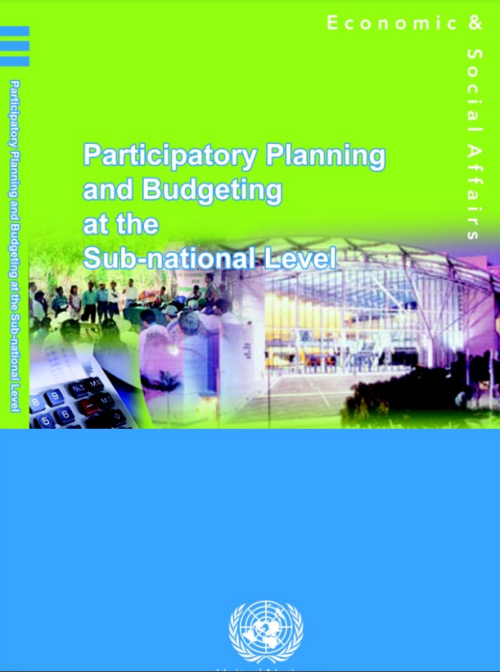
This publication serves as a reference and guide for local governments, non-governmental organizations, civil society and institutions, and will contribute to advancing the discussions in government-community engagements in fiscal processes. UNDESA remains committed to uphold the importance of good governance in achieving the goals of poverty reduction, social justice and equity through greater involvement, empowerment and engagement of citizens.
 Welcome to the United Nations
Welcome to the United Nations